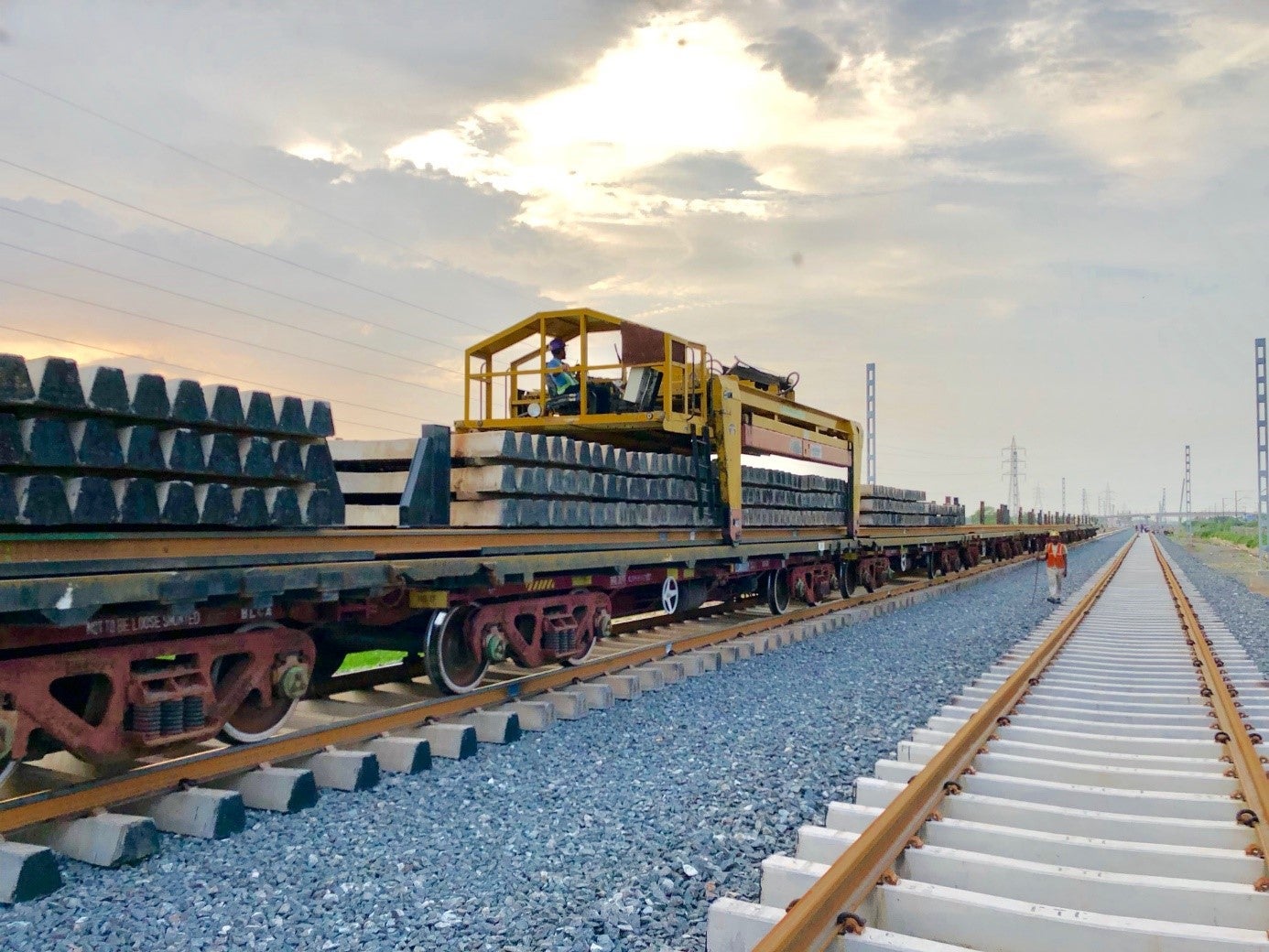
View the 3D presentation here
It’s nearing sunset near the town of Hathras in India’s state of Uttar Pradesh, home to 220 million people—more than the entire population of Brazil.
Progress is being made on the largest railway project in India’s modern history that will increase prosperity by helping move people and goods more safely, effectively, and in an environmentally-friendly way.
India’s Dedicated Freight Corridor (DFC) program is building dedicated freight-only railway lines along highly congested transport corridors connecting the industrial heartland in the north to the ports of Kolkata and Mumbai on the eastern and western coasts.

Through these efforts, DFC is expected to improve transport and trade logistics – bringing much needed jobs, connectivity, and urbanization opportunities to some of India’s poorest provinces – including Bihar and Uttar Pradesh while helping protect the environment. The electric locomotives will help ease India’s energy security issues and escalating concerns about traffic accidents, congestion, carbon emissions, and pollution created by road traffic.
Near Hathras and simultaneously in different sites in the country, workers equipped with modern equipment and techniques efficiently lay 1.5 km of new track per day in different weather conditions. Once completed, electric cables are stretched above and signaling is installed, all in preparation for the electric locomotives reliably to carry their cargo across the country at maximum speed of 100km/h, compared to an average current speed of 25 km/h.

Of the two corridors currently under construction and expected to be completed within the next two years, the World Bank is supporting the Eastern Corridor with $2.36 billion in support through a series of three projects covering 1,200 kilometers. The 343km-long line I visited between Bhaupur to Khurja is expected to be completed within the next year, as a segment of a larger project connecting Ludhiana to Dankuni, near Kolkata expected to be completed in 2020.

Through DFC and other projects on the horizon such as high-speed rail, Indian railways are truly taking major steps to emerge as a world class operator in the 21st century.
View the 3D presentation here


Join the Conversation